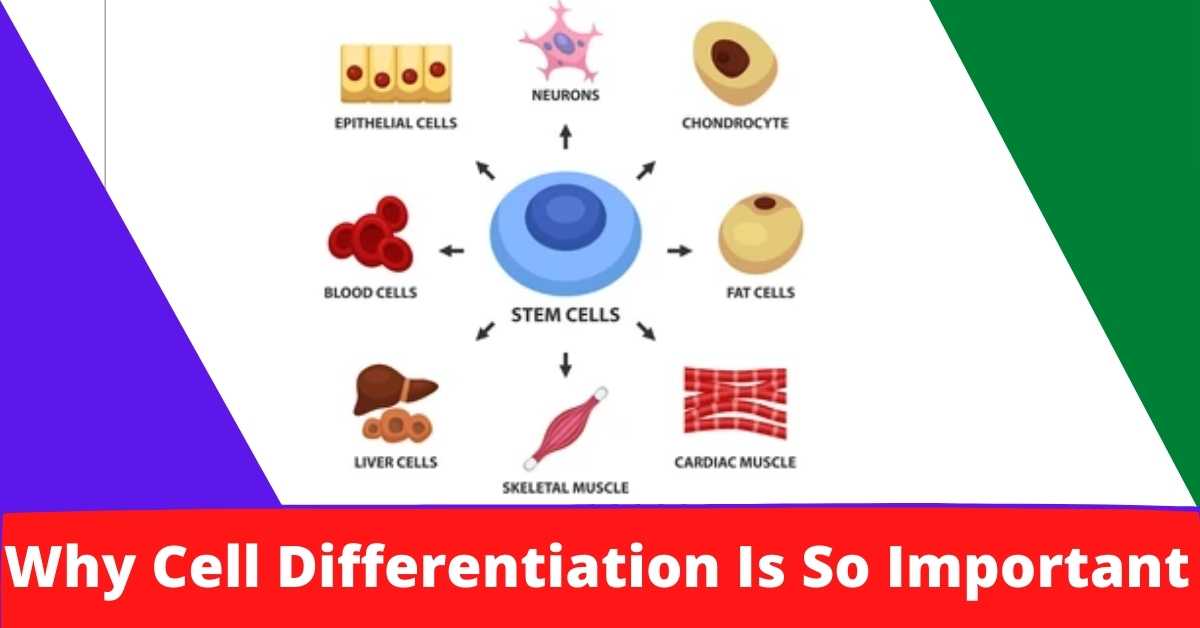Cell differentiation is the process by which a single cell splits into two different cells. In other words, it’s how we grow from a zygote to a human being. Differentiation is important for all living things because it ensures that each body part has the right number of cells and that no one cell gets too big or small.
This process also ensures that our tissues and organs form properly and keep us healthy. For example, skin cells differentiate from blood cells so they’ll be found on the surface of your skin instead of in your bloodstream. Key immune system components called T-lymphocytes differentiate from stem cells so they’ll have the right shape, size, and function to fight off infection.
The Importance of Cell Differentiation
Cell differentiation is important for all living things because it ensures that each body part has the right number of cells and that no one cell gets too big or small.
This process also ensures that our tissues and organs form properly and keep us healthy. For example, skin cells differentiate from blood cells so they’ll be found on the surface of your skin instead of in your bloodstream. Key immune system components called T-lymphocytes differentiate from stem cells so they’ll have the right shape, size, and function to fight off infection.
Cell differentiation is a crucial process for human beings as well.
Differentiation is responsible for all aspects of growth, including how fast we grow, how tall we grow, and how fat we grow. It also contributes to our health because if cell differentiation isn’t working properly, it can lead to birth defects like Down Syndrome or cancer like leukemia.
Cell differentiation is an important process that affects everyone on the planet.
Cell Differentiation and You
Cell differentiation is important for you too! It not only ensures that your body grows into a healthy human being, but it helps you stay healthy.
Differentiation helps form our tissues and organs so they can do their jobs properly. For instance, skin cells differentiate from blood cells so they’ll be found on the surface of your skin instead of in your bloodstream. Immune system components called T-lymphocytes differentiate from stem cells so they’ll have the right shape, size, and function to fight off infection.
But the process is also important in maintaining your health. Going back to the skin cell example, cell differentiation ensures that skin cells are in the right place to keep you healthy. When skin cells differentiate back into blood cells, they know to go back to your bloodstream where they can fight infection.
Cell differentiation is also important for reproductive health. It’s how male sperm cells are made, and it’s how female egg cells are made. Without it, we couldn’t reproduce.
Cell Differentiation and Your Family
Cell differentiation in humans is important because it affects our development and how we work. For example, when cell differentiation goes wrong, it can cause serious health problems, like cancer.
Many types of cancer start with a single cell that grows out of control. In some cases, a cancer cell will disrupt the way a healthy cell would have differentiated. For example, a cancer cell might have too many proteins compared to a healthy cell.
Differentiation is important for the rest of your family as well. You might not know that your kids could inherit health problems from you that are caused by a genetic mutation that disrupts the normal process of differentiation. It’s important to have your family member’s cells tested early so they can be screened for any inherited conditions.
Conclusion
It’s important to know the basics of cell differentiation because it affects how our bodies form, grow, and function. Cell differentiation helps ensure that our cells are healthy.
For example, skin cells differentiate from blood cells so they’ll be found on the surface of your skin instead of in your bloodstream. T-lymphocytes differentiate from stem cells so they’ll have the right shape, size, and function to fight off infection.
Cell differentiation helps ensure that our bodies grow properly and stay healthy.

